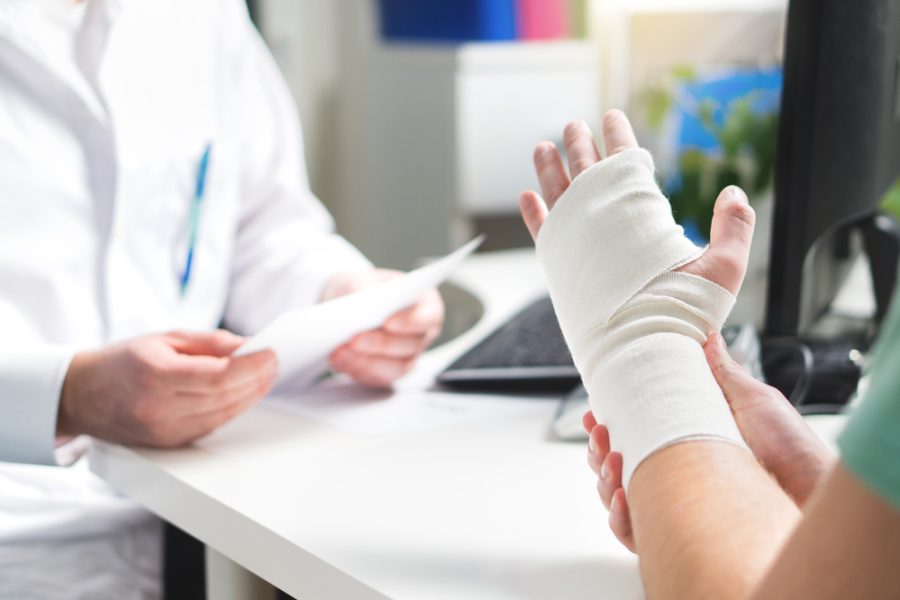Every year, thousands of people suffer injuries due to defective products. Whether it’s a malfunctioning electronic device, a dangerous pharmaceutical drug, or a faulty vehicle component, defective products can cause severe harm. If you or a loved one has been injured by a defective product, it’s crucial to take immediate steps to protect your rights and seek compensation for your damages. We outline the key steps you should take if you’ve been injured by a defective product.
1. Seek Immediate Medical Attention
Your health and safety should be your top priority. If you’ve been injured, get medical treatment as soon as possible. Even if your injuries seem minor at first, some complications may arise later. Seeking medical attention also creates a medical record that will be crucial evidence in your case.
2. Preserve the Defective Product
If possible, keep the defective product in its current state. Do not attempt to fix or alter it, as this could affect your ability to prove that it was defective. Store all related packaging, instructions, receipts, and warranty information. This documentation can help establish the product’s chain of custody and identify manufacturing defects.
3. Document Your Injuries and the Incident
Take detailed notes about how the injury occurred. Include the date, time, location, and circumstances surrounding the incident. If possible, take the following steps:
- Take clear photos of your injuries.
- Capture pictures of the defective product from different angles.
- Record any warning labels or lack of safety instructions.
- Gather the names and contact information of any witnesses who saw the incident.
These pieces of evidence can significantly strengthen your claim.
4. Report the Incident
Notify the manufacturer or retailer about the defective product. Many companies have procedures for handling product defects and may issue recalls. However, be cautious about signing any settlement agreements or waivers before consulting a lawyer.
Additionally, you can report the defective product to agencies such as the Consumer Product Safety Commission (CPSC), the Food and Drug Administration (FDA), or the National Highway Traffic Safety Administration (NHTSA), depending on the type of product involved.
5. Keep Track of Your Medical Expenses and Losses
If your injury resulted in medical bills, lost wages, or other financial burdens, keep detailed records of these costs. These may include:
- Hospital and doctor visit bills
- Prescription medication costs
- Physical therapy expenses
- Lost income due to time off work
- Any other financial losses related to your injury
This documentation will help establish the extent of your damages and support your claim for compensation.
6. Avoid Discussing Your Case on Social Media
In today’s digital age, anything you post on social media can be used against you. Avoid discussing your injury, the defective product, or any potential legal actions online. Insurance companies and defense attorneys may look for inconsistencies in your statements to discredit your claim.
7. Consult a Personal Injury Lawyer
Product liability cases can be complex and require legal expertise to navigate. A skilled personal injury attorney can help you determine whether you have a case, gather necessary evidence, and negotiate with the responsible parties on your behalf.
An attorney can also help establish liability based on three types of product defects:
- Design Defects: Flaws in the product’s design that make it inherently dangerous.
- Manufacturing Defects: Errors that occur during the production process, making a product unsafe.
- Marketing Defects (Failure to Warn): Inadequate warnings or instructions that fail to inform consumers of potential risks.
Your lawyer will assess the nature of the defect and help you file a lawsuit if necessary.
8. Determine the Type of Legal Claim
If you decide to pursue legal action, your attorney may file a claim based on:
- Negligence: Proving that the manufacturer or seller failed to ensure the product was safe before distributing it.
- Strict Liability: Holding the manufacturer liable for defects, regardless of whether they were negligent.
- Breach of Warranty: Establishing that the product did not meet its expressed or implied guarantees.
Your lawyer will help determine the best legal strategy to maximize your compensation.
How We Can Help
At Hayes Law, we specialize in handling product liability cases and fighting for injured victims. Our experienced personal injury attorneys have successfully won cases against some of the largest corporations, ensuring our clients receive the compensation they deserve.
When you work with Hayes Law, we will:
- Conduct a thorough investigation into your case.
- Preserve and analyze evidence to prove liability.
- Negotiate aggressively with manufacturers and insurance companies.
- Take your case to court if a fair settlement is not reached.
If you or a loved one has suffered due to a defective product, don’t wait to take action. Contact Hayes Law today for a free consultation. Let us help you get the justice and compensation you deserve.

